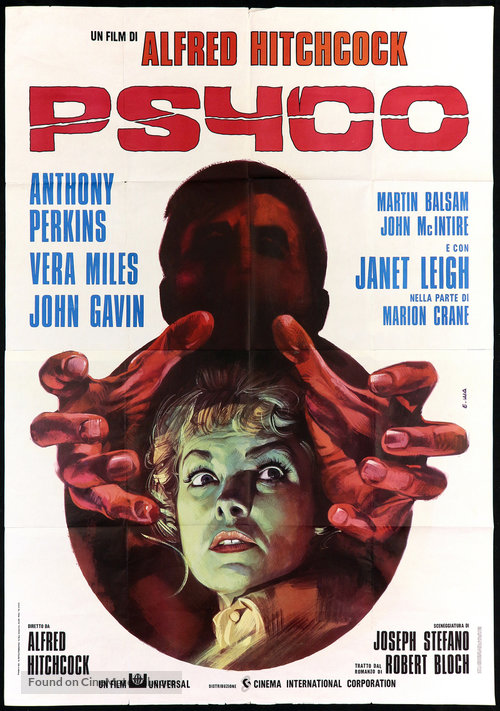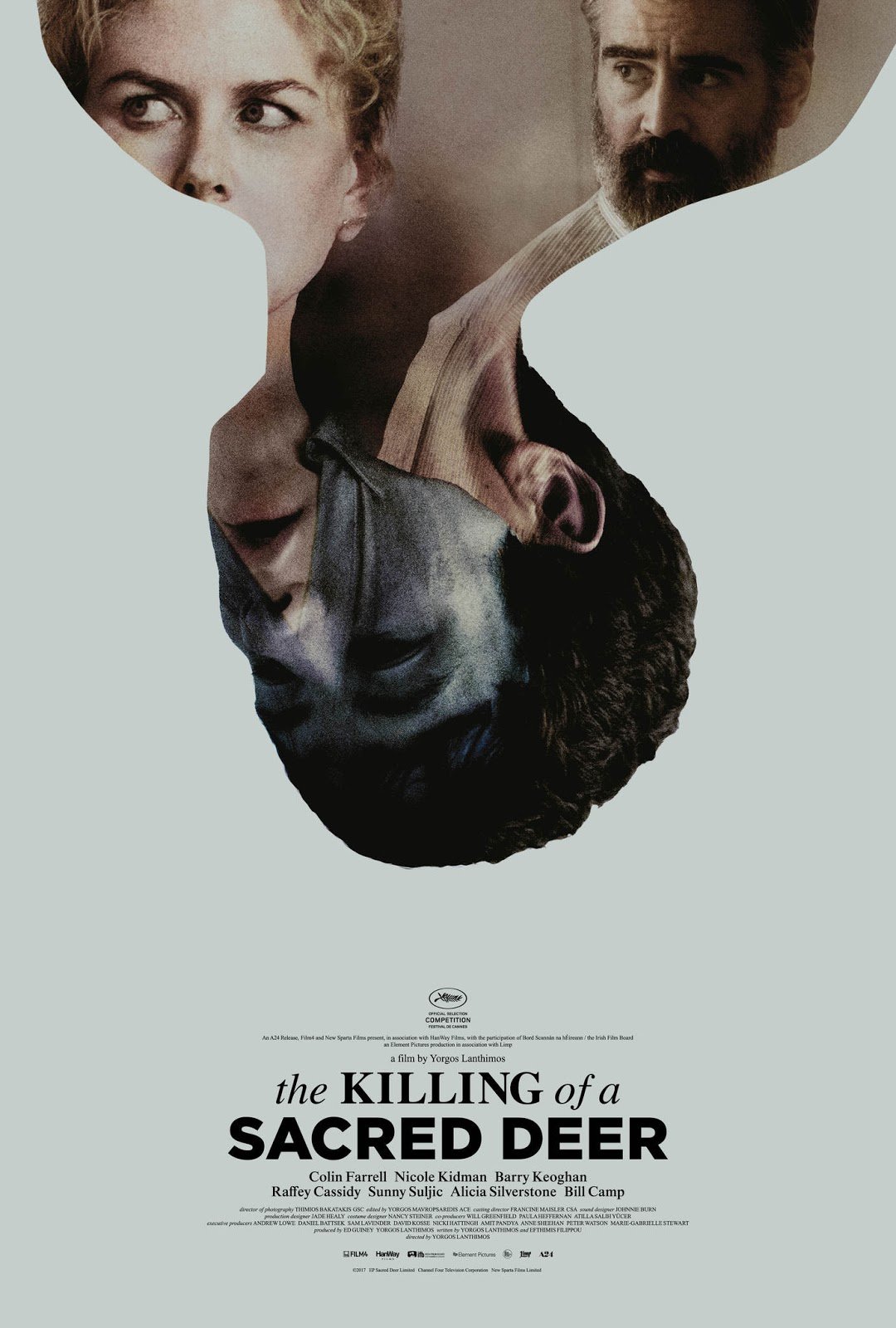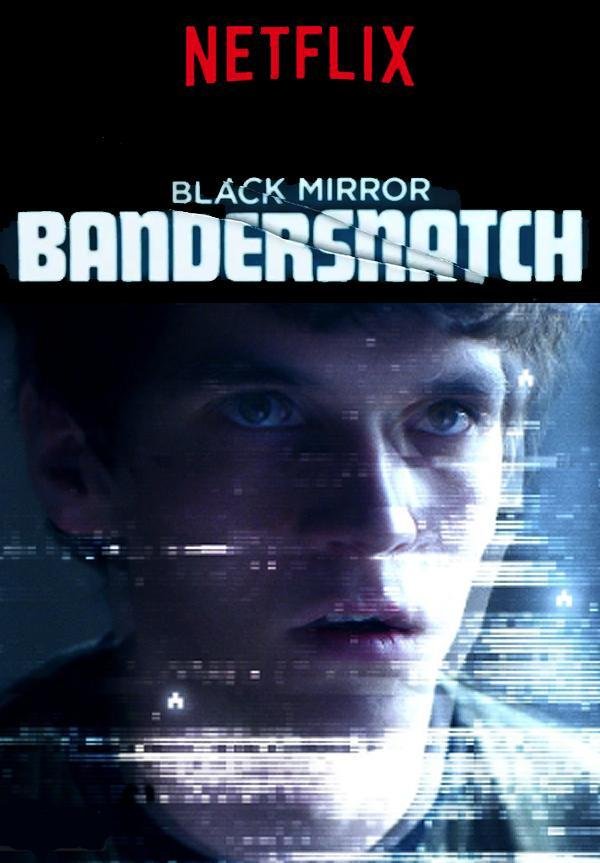Marketing in the realm of cinema has come a long way - as production costs soar, digital marketing stands to play a seminal role in the proliferation of media hype and the widening of cinema as a subject matter in itself. John Caldwell opines that movie marketing can be viewed as a ‘quintessential form of industrial self-representation’ - hence, a lot of expert techniques employed by the best digital marketing agencies play an instrumental role in the enrichment of a film and its enduring legacy. Here, we shall be dissecting three distinct, seminal films that employed ingenious marketing techniques in order to further their cinematic mythos.
Venturing into the Gothic Past - Alfred Hitchcock’s Psycho (1960)
 Master storyteller, the conjurer of nightmarish landscapes, and an auteur in his own right, Alfred Hitchcock has shaped the horror genre like no other. However, here’s a lesser-known fact: Hitchcock was also a master marketer in an era that was yet to witness the dawn of the digital empire. It is important to remember that Hitchcock couldn’t hire an agency offering PR or online reputation management services at that particular point of time - hence, he had to rely upon word-of-mouth and manual marketing strategies to transform Psycho into the hit it currently is.
Master storyteller, the conjurer of nightmarish landscapes, and an auteur in his own right, Alfred Hitchcock has shaped the horror genre like no other. However, here’s a lesser-known fact: Hitchcock was also a master marketer in an era that was yet to witness the dawn of the digital empire. It is important to remember that Hitchcock couldn’t hire an agency offering PR or online reputation management services at that particular point of time - hence, he had to rely upon word-of-mouth and manual marketing strategies to transform Psycho into the hit it currently is.
So what did the master of horror do? Create suspense and apprehension in the hearts of the audience. Hitchcock bought the rights of the novel that the movie was based on, along with every copy of the book available in the market - so as to hinder people from finding out about the twist ending! Also, he approached theatres that screened Psycho and handed them manuals with instructions regarding the screening - an arduous yet genius move. A ‘Psycho Policy’ was forged in order to ingrain this visceral experience in the minds of those who chose to watch it:
 This created a unique sense of anticipation, coupled with a trailer that was mystifying, perplexing, and even funny in parts. Only the last few seconds hinted at the macabre. This was accompanied by an #AntiSpoiler campaign of sorts (a precursor to the recent #DontSpoilTheEndgame) wherein the actors did not grant any interviews and film critics were not allow to review it pre-release, as it is normally done. These deft marketing strategies helped turn the movie into a massive hit. In order to help you understand how this worked in the 1960s, here’s the official theatrical trailer for Psycho, in all its glory:
This created a unique sense of anticipation, coupled with a trailer that was mystifying, perplexing, and even funny in parts. Only the last few seconds hinted at the macabre. This was accompanied by an #AntiSpoiler campaign of sorts (a precursor to the recent #DontSpoilTheEndgame) wherein the actors did not grant any interviews and film critics were not allow to review it pre-release, as it is normally done. These deft marketing strategies helped turn the movie into a massive hit. In order to help you understand how this worked in the 1960s, here’s the official theatrical trailer for Psycho, in all its glory:
Marauding Into the Tragic Postmodern - Yorgos Lanthimos’ The Killing of a Sacred Deer (2017)


Post the wide-spread acclaim of The Lobster (2015), writer/director Yorgos Lanthimos etched his second masterpiece in the form of a drama thriller that has surreal, non-sequitur, and nihilistic overtones. In terms of the film’s marketing, one can only describe it as unconventional and absurd - which heavily permeates Lanthimos’ cinematic universe - starting right from the film’s posters, as depicted above.
In the first poster, an upside-down image of Martin (Barry Keoghan) dominates the premise, with a reflection of Steven (Colin Farrell) and Anna (Nicole Kidman) inside Martin’s silhouette. While the topsy-turvy imagery evokes anticipation and disorientation in the viewer, it also sets the tone of the film, which is unique, shrouded in Lynchian overtones, with no exact context to the storyline. The second poster manages to evoke the same aura, where Steven stands alone in an absurdly tall hospital room, with an almost monolithic structure behind him. This is reinforced by the trailers, which appear evasive and is marketed as a Christmas movie. It is almost cruel when the screen flashes: “Bring home a gift for the entire family.” A gift indeed, as the movie opens a sadistic Pandora’s box with loose elements of Greek tragedy, and the concepts of justice, retribution, and fate.
 Perhaps the most ingenious piece of marketing done by A24 is the movie’s website, which allows you to ‘see the doctor’ to analyze what’s wrong with you, based on a series of choice-based questions designed to test your outlook towards life. The answers range from being diagnosed with paranoia, nihilistic rage, cynicism, and narcissism. No matter what you end up getting, the lingering feeling is that of resignation and flat-out despair.
Perhaps the most ingenious piece of marketing done by A24 is the movie’s website, which allows you to ‘see the doctor’ to analyze what’s wrong with you, based on a series of choice-based questions designed to test your outlook towards life. The answers range from being diagnosed with paranoia, nihilistic rage, cynicism, and narcissism. No matter what you end up getting, the lingering feeling is that of resignation and flat-out despair.

Foreshadowing the Matrix of the Future - Netflix’s Bandersnatch (2018)
 Choose Your Own Adventure - these words propel us back to childhood - the thrilling nights of reading the mindbending and genre-defying horror novels of R.L.Stine’s Goosebumps. Netflix’s Black Mirror: Bandersnatch takes interactive adventures to the next level by plunging the viewer into a visceral narrative maze that baffles, intrigues, and impresses. From a marketing perspective, Bandersnatch forays into the realm of the future, starting from programmatic product placement to forging itself into a tool of massive data accumulation, in turn, creating an internal programmatic marketing infrastructure. Most of the decisions need to be made on behalf of video game programmer Stefan (Fionn Whitehead), based on which, the viewers are plunged into an ouroboros of storylines that play, replay, end, and deviate, while altering the fabric of Stefan’s reality.
Choose Your Own Adventure - these words propel us back to childhood - the thrilling nights of reading the mindbending and genre-defying horror novels of R.L.Stine’s Goosebumps. Netflix’s Black Mirror: Bandersnatch takes interactive adventures to the next level by plunging the viewer into a visceral narrative maze that baffles, intrigues, and impresses. From a marketing perspective, Bandersnatch forays into the realm of the future, starting from programmatic product placement to forging itself into a tool of massive data accumulation, in turn, creating an internal programmatic marketing infrastructure. Most of the decisions need to be made on behalf of video game programmer Stefan (Fionn Whitehead), based on which, the viewers are plunged into an ouroboros of storylines that play, replay, end, and deviate, while altering the fabric of Stefan’s reality.
 The best thing about Bandersnatch is that it has limitations. Choice is merely an illusion, and in the end, you’re left with the feeling that the series is playing you. Moreover, even after having played the meta-narrative multiple times, viewers crave for more, and they are not disappointed - a secret ending is unlocked after a series of permutations and combinations, wherein Stefan plays a distorted audio that converts into a QR code when run through a ZX Spectrum Emulator! When scanned, it leads to the Tuckersoft website with featured games from the movie, such as Nohzdyve and Bandersnatch, along with references to other Black Mirror episodes, such as Metl Hedd and White Bear.
The best thing about Bandersnatch is that it has limitations. Choice is merely an illusion, and in the end, you’re left with the feeling that the series is playing you. Moreover, even after having played the meta-narrative multiple times, viewers crave for more, and they are not disappointed - a secret ending is unlocked after a series of permutations and combinations, wherein Stefan plays a distorted audio that converts into a QR code when run through a ZX Spectrum Emulator! When scanned, it leads to the Tuckersoft website with featured games from the movie, such as Nohzdyve and Bandersnatch, along with references to other Black Mirror episodes, such as Metl Hedd and White Bear.
 This not only adds to the depth of Bandersnatch’s mythos but also provides viewers with numerous easter eggs that help retain its hype. The free promotional game of Nohzdyve derived from the website is a free treat for audiences too. All in all, Bandersnatch revolutionizes interactive content and is a step towards marketing that belongs to the near future.
This not only adds to the depth of Bandersnatch’s mythos but also provides viewers with numerous easter eggs that help retain its hype. The free promotional game of Nohzdyve derived from the website is a free treat for audiences too. All in all, Bandersnatch revolutionizes interactive content and is a step towards marketing that belongs to the near future.
Which marketing move impressed you the most? Do let us know!















